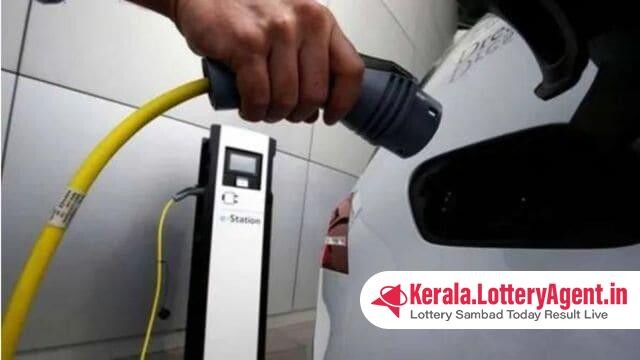
As the sunrise sector of electric vehicles (EVs) picks up speed in India, Tata Passenger Electric Mobility (TPEM), a subsidiary of the Indian automobile giant Tata Motors, announced a strategic partnership on Thursday with Shell India Markets to catalyze the growth of public EV charging infrastructure in the country. This move blends the substantial experience and vision of two industry powerhouses, aiming to make EVs more accessible and convenient for the booming customer base.
TPEM, leveraging data and insights gathered from its robust customer pool of over 1.4 lakh Tata EVs already traversing Indian roads, intends to smartly position chargers at strategic locations. These locations are not random; they are the ones most frequented by EV owners. This user data-driven approach to infrastructure development could be a game-changer, ensuring that charging stations are both where they are needed most and potentially where they will be the most profitable.
Understanding that the key hindrance to EV adoption remains ‘range anxiety,’ Tata’s partnership with Shell is poised to tackle this head-on. Shell, with its established network of fueling stations that spiderweb across the nation, offers existing touchpoints that can be rapidly transformed into energy hubs for tomorrow’s clean transportation methods.
The synergy between TPEM’s market insights and Shell’s existing real estate and branding could indeed mark the start of a renaissance in EV infrastructure, a tightly woven grid of accessible charging points that could put the specter of range anxiety to rest.
Balaje Rajan, TPEM’s Chief Strategy Officer, spoke about the initiative stating, “Through this partnership, we aim to grow the existing charging infrastructure, which is crucial for mainstream adoption of EVs in the country, particularly as the customer base continues to expand.” His words not only reflect an understanding of current market needs but also a commitment to accelerating an EV-friendly future.
Taking a peek into Shell’s corner, the company, represented by Director Sanjay Varkey, echoes a similar optimism. He underlined Shell’s commitment to redefine the EV charging experience by offering an amalgamation of solutions that prioritize convenience, safety, and sustainability. Shell, hence, does not view this as just another business venture but as an opportunity to shape and service a nascent but rapidly evolving market ecosystem.
The strategic collaboration hints at a broader vision than merely erecting charging points. Both companies are looking at a holistic ‘energy transition’ narrative that supports the national agenda of moving towards sustainable, eco-friendly transport solutions. This project could also spur employment, drive technological innovation, and further solidify India’s position as a significant player in the global EV ecosystem.
Indeed, a partnership such as this, between a native automotive juggernaut and a global energy stalwart, might just provide the right ingredients for a scalable and sustainable EV charging infrastructure. It encompasses all the essential elements—strategic location placement of chargers, wisdom derived from a considerable EV consumer base, and an unambiguous thrust on enriching the driving and charging experience for the Indian electric vehicle owner.
The electric vehicle movement in India stands on the cusp of accelerated growth, powered by policy support, consumer interest, and environmental imperatives. Initiatives like the collaboration of Tata Motors’ TPEM and Shell India are emblematic of the industry’s dynamism and its alignment with a greener, tech-driven future.
As this partnership takes shape and rolls out its plans, all eyes will be on the horizon—looking for a seamlessly threaded network of chargers to punctuate the Indian landscape, offering a charge point at every bend, and powering the drive towards a cleaner, emission-free mobility paradigm.












